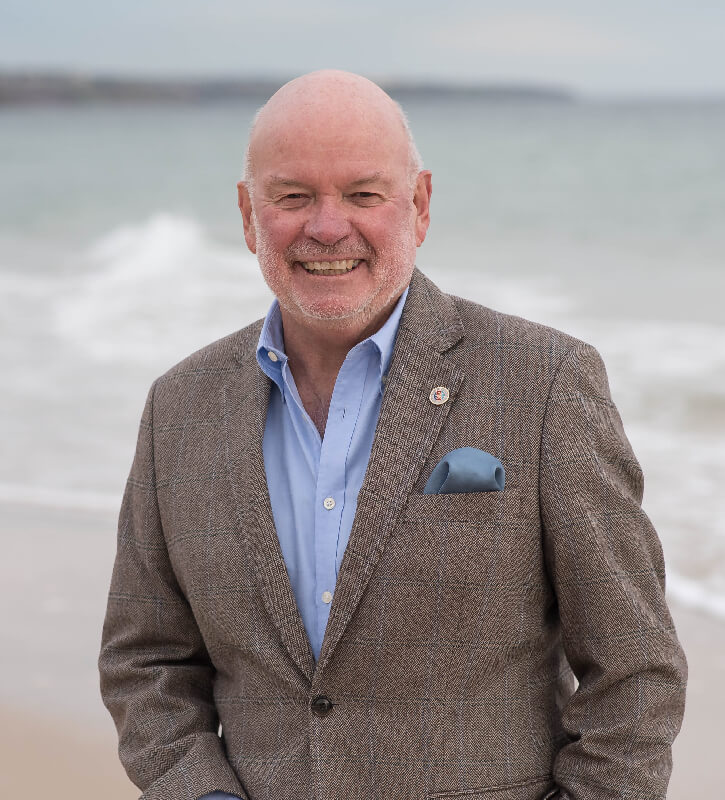David Everitt
Veterans Ambassador

Q: What are your goals for Equally Well? What inspires you about Equally Well?
A: I was formally the Presiding member of the Veterans Health Advisory Council, an advisory council to the Minister for Health in the SA Government. During my tenure, I also chaired the Mental Health sub-committee and during this time was exposed to a wide range of mental health experts. I learnt that collectively they all advocated a holistic health approach to the treatment of mental health challenges. Consequently, I have been committed to this approach and have continued to advocate it to various veteran’s organisations, and to Flinders University and have encouraged the Department of Veterans Affairs (DVA) to be more accepting of such an approach. I believe that Equally Well, with sufficient partnerships and funding, has the potential to make a significant difference in the lives of people facing mental health challenges. My goal is simple, encourage as many veterans as I can to engage in appropriate physical exercise, particularly in group sessions, to manage their mental health challenges.Q: How do you see Equally Well benefiting carers/consumers/practitioners?
A: Simple, carers/consumers/practitioners need a champion, an organisation that keeps promoting a strong message to government(s), health providers, health insurers, academics, and the public at large that mental health initiatives are investments that improve quality of life and they should not be viewed as short-term costs. Carers, and in many cases partners, in my opinion, are the key to managing the lifestyle of mental health sufferers. But these individuals do not often get the recognition nor the support that they need and deserve.Q: What hurdles do you currently see Equally Well facing and will have to face in the future? Is there a particular area you believe needs more focus that EW can develop on?
A: Mental health funding is often at the whims of government policies that can tend to be short-term focussed. Long-term funding is essential to ensure success, in other words, funding should be tied to a “whole of life” approach. Equally Well can focus on education and public relations with a strong message to remove the perceived stigma and fears that have grown through ignorance and poor media reporting.Q: What have you personally learnt and has this knowledge impacted your life and/or the lives of those around you?
A: As a veteran with PTSD I have learnt that mental health challenges may well be a “life sentence” but it does not have to define me or my quality of life. To that end, my personal health approach is fitness which provides many health benefits. Life is a journey, as is keeping healthy to maximise our wellbeing.Q: As an Equally Well Ambassador, you are an advocate for improving the physical health of people living with a mental illness, since the symposium, have there been any new developments or research in your field?
A: In a joint approach with Associate Professor Ben Wadham, Professor Sharon Lawn (One of SA Health’s Mental Health Commissioners) of Flinders University and Lee Bowes, the President of the Defence Force Welfare Association – SA Branch, we have submitted a grant application with DVA to formalise an approach making the benefits of holistic health a key platform in treating veterans and families with mental health challenges. As a member of the Defence Force Welfare Association-SA Branch, this platform enables the partnering with COTA-Strength for Life program which offers professionally supervised strength programs in a group environment. These are to be promoted through a virtual network or “Hub” like Men’s Shed, to encourage veterans and their partners of all ages to become involved in physical activities. As the initial previous Chair of Australian Services Care Network (ASCN); a veteran aged care alliance initially with members in Australia and New Zealand, our main goal was to recognise future residents (veterans) who would have significant mental health challenges and the approach was to train staff to manage this. Subsequently, ASCN-NZ organises regular veteran focussed webinars from the “5 Eyes” intelligence alliance nations, presented by leading researchers in the varying fields of mental health challenges. These webinars keep me up to date with veteran-related mental health research and outcomes much of which would be applicable and beneficial to the wider community.Q: What do you see is your role for Equally Well as one of our ambassadors?
A: To promote the message and benefits of a holistic approach to mental health management and encourage groups and individuals to become involved in physical activities. My primary focus is on both the serving and ex-serving veterans and their families in the wider community. I believe constant messaging reinforcing the benefits is more effective than sporadic messaging.
